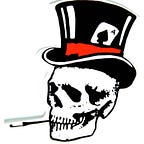HIGHLIGHTS FROM BILL TONELLI’S OBIT
Only the good parts.
He was musical from a young age. “I cannot remember not singing,” he told The New York Times in 2002. His childhood, he said, included once singing in a children’s group for an audience that included Joseph Stalin.
By 1969 he had become “a menace to every casino in Europe,” Robert Lardera, the San Remo casino’s managing director, told The Morning Herald. “I don’t know how he does it exactly, but if he never returned to my casino I would be a very happy man,” Mr. Lardera said.
“He put the bongos on the map and is the bridge between Latin jazz and jazz,” the trumpeter Gilbert Castellanos told The Union-Tribune in 2015. “The fact that he’s 96 and still doing it is unbelievable.”
He moved full time to Tangier in 2006. There he served as warden at the Anglican Church and tended his orchard of pomegranate trees and poisonous plants on a slope overlooking the Strait of Gibraltar.
“Essentially, if anyone asked me what I did for a living, I said I sold mayonnaise — mayonnaise with chicken, mayonnaise with shrimp, mayonnaise with eggs, mayonnaise with potatoes,” he told Calvin Trillin, a regular customer, in 2002, when he allowed Mr. Trillin to write a rare profile of him, in The New Yorker.
He concluded as early as 1970 in the journal The Review of Economic Studies and in subsequent studies with Peter Diamond, an economist and fellow Nobel laureate at the Massachusetts Institute of Technology, that “the income tax is a much less effective tool for reducing inequalities than has often been thought” and that an “approximately linear” — or flattened — tax schedule would be more desirable.
Mr. Newhart wrote on Twitter: “He was our bullpen guy — you could always go to him. He was one of the most positive people I’ve ever known.”
“I was becoming dangerous,” he joked in 2000. When patrons saw him coming, he said, “They’d cross the street.”
He was both the author of many “$5 a day” travel books and a driving force behind underground publications that, spurning traditional journalism, attacked political, social and cultural norms with bawdy language and comic-book imagery, all of it financed by sexually explicit advertising.
“I’m trying to get my freedom back,” he was quoted as saying in an article about the climb in Men’s Journal that year. “I could have saved my marriage if I had chosen to. But when I was forced to take a new look, I realized, ‘Hey, it’s not what I really want.’ It’s a weird thing, but climbing is still at the center.”
Billy, as his family called him, was more of a jokester than a student and notably adept at playing with a yo-yo. He graduated from the American Academy of Dramatic Arts in Manhattan, performed in summer stock (but did not enjoy acting) and began working in the late 1940s as a stand-up comedian with a talent for doing impressions.
“I am glad that at the choice point at 18 I resisted going into my uncle’s umbrella business,” he wrote in an autobiographical essay.
(All taken verbatim from obituaries published in The New York Times in 2018.)
###
